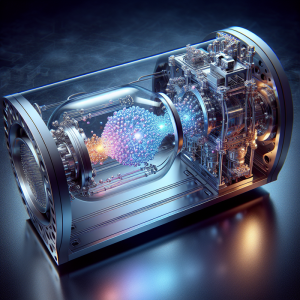OpenAI Continues to Make Strides in AI Development with ChatGPT o1
OpenAI, at the forefront of the artificial intelligence sector, has recently made notable progress on the path to creating artificial general intelligence (AGI) with its latest AI creation, ChatGPT o1. AGI aims to replicate the human mind’s capabilities, such as reasoning, understanding language, learning, and problem-solving. As the zenith of AI research, AGI is anticipated to transform everyday life significantly and remains the pinnacle objective within the AI community.
The ChatGPT o1 model sets itself apart from its predecessors through its ability to perform complex cogitative tasks. Moving beyond the standard chatbot responses found in models like ChatGPT 4, Gemini, Claude, and Grok, ChatGPT o1 excels in engaging in logical deductions, inferring causal relationships, and tackling issues by applying acquired knowledge.
Embarking on a Revolutionary AI Domain
OpenAI’s novel AI model points to a future where AI transcends simple task automation. It is envisaged as a sophisticated instrument for unraveling complicated challenges in diverse fields. For instance, ChatGPT o1 is described as being capable of helping medical researchers in cell sequencing annotation, assisting physicists in generating intricate formulas for quantum optics studies, and enabling coders to manage complex workflows.
In a significant demonstration of its intellectual capabilities, ChatGPT o1 underwent weekly intelligence quotient assessments as a part of the TrackingAI initiative and achieved an impressive score of 124. This score surpasses the 80 to 90 range typically seen in other AI models and approaches the average human IQ standard of 100, signaling a potential major advance in AI capability.
With this innovation, OpenAI sought significant capital, targeting a valuation of around $150 billion. Recognizing the promise in OpenAI’s direction, Microsoft injected a substantial $13 billion, and Nvidia contributed a crucial $100 million to the burgeoning enterprise.
Navigating Towards a Future of AI-enhanced Web Browsing
Beyond improving AI models, OpenAI is venturing into the competitive terrain of web browsers, aiming to rival dominant contenders such as Google Chrome. It envisions integrating robust AI functionalities with conventional browsing utilities, possibly altering the way we interact with the web.
The continued investments from renowned corporations reinforce the belief in OpenAI’s ability to lead in the AGI space. Such a pioneering breakthrough triggers contemplation about the underpinnings of the tech industry and how these ground-breaking movements in AGI will redefine tech conglomerates including Apple and others, reshaping the sector’s future.
























